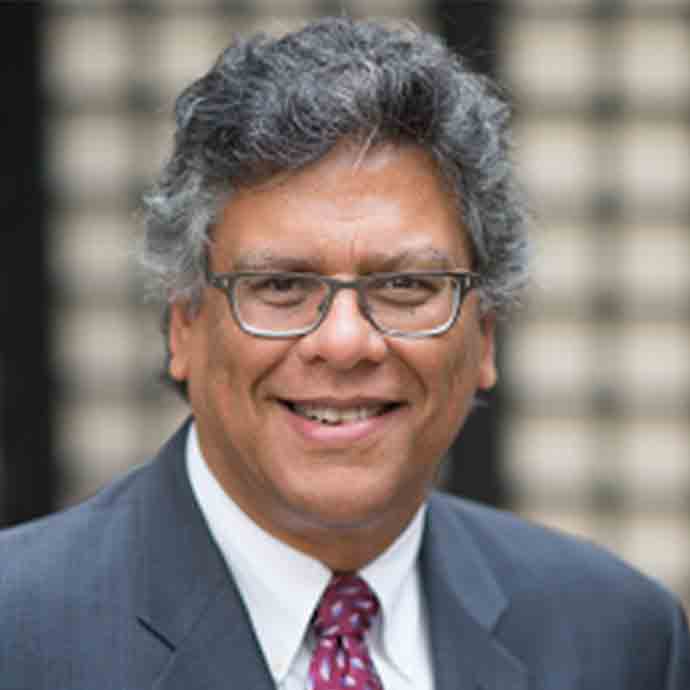FROM THE DIRECTOR
SEPTEMBER 2019
Economic inequalities contribute to racial wealth gap in America
AFN members, funders and financial institutions, through their grantees are catalyzing many encouraging affirmative efforts to build assets, reverse inequities, and develop new approaches. By testing innovative ideas, having household identify the needs, developing systemic answers, and by leveraging efforts collaboratively, there are many pockets of progress. Indeed, if we are to close the racial and gender wealth gaps, funders need to lead in challenging the norm for too many Americans today. If we do so, it is possible to achieve better results for community, workers, and families.
The focus is to remove structural barriers, to advance equitable opportunity, to confront internalized assumptions that reinforce historic barriers based on gender or race, and to stop assigning blame on the worker or consumer in debt. This intersectional approach continues to require testing new approaches, scaling solutions, funding research and advocacy for new policies by private and public stakeholders, and engaging constructively in uncomfortable discussions to change what is.
Funders can also lead in supporting unrelenting commitments to alter and restore systems to support economic stability and the opportunity for mobility across the community. States and schools taking action to reduce student debt is such a change. Cities rethinking fines and fees or employers adopting a broader array of relevant wealth building benefits are others.
Growing numbers of funders know that equitable asset building is what we need to catalyze economic growth that strengthens households and community. For many it is also knowing that racial wealth gaps need to be closed from a moral sense of justice. And as a practical matter, there are better ways for government, health systems, education providers and mainstream lenders to act that will foster achieving results across the community
But that is not an overnight fix. And the theory of change has to result in actual change for low and moderate income households.
One developing example is occurring in seven Southern states. At the Southern Partnership to Reduce Debt, catalyzed by funding from the Annie E Casey Foundation, more than 20 state and local practitioner and advocate organizations as well as funders in their respective states are learning with and leveraging seven national organizations, who are providing technical assistance and support. The project has focused on addressing and ending systemic wealth stripping, but not just from the usual culprits. Instead, by focusing on what community residents and organizations identified, the focus is on one or more of the following:
- non-loan debt caused by medical expenses or by government and judicial fines and fees, and
- non-mortgage consumer debt driven by student loans and pay day or car title loans.
The focus of the partnership is to foster the social and systemic transformation needed to shift both the cultural narrative that debt is the result of the failing of the debtor – it is not; and that there is no alternative to these debt creating, wealth stripping policies and practices to deliver health, education, government services or to meet short term cash needs – there is. Indeed, the systems developed upon false assumptions and biased attitudes need to undone, especially since these practices disproportionately focus on people of color.
For example, one county in North Carolina–with a substantial majority of adults who are Black and Native American–suffers with well over half of the county’s adults whose driver’s licenses are suspended due to a system of escalating and very high fines and fees. These fines and penalties do not serve public safety and actually represent an uncollectible and unreliable income source for government. In fact, this system undermines public safety by having so many unlicensed drivers on the road and undermines economic stability where employers find it difficult to hire reliable employees who need to drive to get to work. The persons whose licenses are suspended include workers, students, parents and community leaders. When you exceed in punishing more than half a community, there is no argument — the net is capturing and hurting regular folks – for the pursuit of an elusive dollar. There are better ways. And advocates, judicial leaders and newly elected District Attorney’s are lifting up the alternatives. Simply put, fines that allow for folks to pay what they can and systems that restore a judge’s ability to exercise discretion to waive fees when reflecting the person’s ability to pay actually generate more income when implemented.
Similarly, hospital systems need to be held accountable for price manipulation and in some cases for frequent and rapid referral of medical debt to collection and lawsuits without honestly considering the person’s ability to pay over time or to discount or waive fees. The Southern Partnership has discovered that a public spotlight to expose excess and harmful wealth stripping practices can be enough to cause changes in their practices.
With less debt, a household can invest in their children, their home or savings for both short and long term. And yes, there are many elements for wealth building that need to be addressed as well. What is more and more obvious to funders and their partners is that there is not a single set of policy changes that will achieve equitable inclusion of all to prosper in the economy, but an array of interconnected efforts to affect public and private policy and systemic practices as well as individual behavior to engage with asset building opportunities if needed.
Engage to keep change happening, to build an equitable and inclusive economy in community after community. Join AFN and share your wisdom, experience, and leadership as you connect with more funders across the country.



